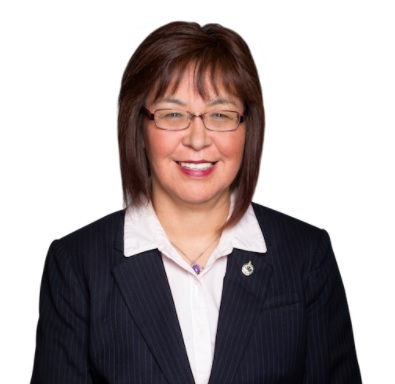The Federation of Sovereign Indigenous Nations said Wednesday it is “dissatisfied” with this week’s federal budget announcement.
“We acknowledge and appreciate the areas that the federal government has committed funding to, but we were hoping for a better outcome,” FSIN Chief Bobby Cameron said in a release. “When we were in Ottawa two weeks ago, the federal government announced to us that they were going to invest $40 billion into First Nations housing and that they were working with the provinces to make it happen. Where was this $40 billion in the budget? And if any discussions are happening with the province, First Nations should be included into those discussions. We have a serious housing crisis in our communities and a $40 billion injection would only be a small dent in what is desperately needed in First Nations communities to bring our living conditions up to par with the rest of Canada.”
Cameron added the commitment of $101.5 million over five years for First Nations governance is insufficient, saying First Nations have to build new governance structures now.
He called the investment in training and skills “exciting”, but added they were hoping for an injection into post-secondary education — noting “there’s no commitment to implementing the Treaty right to education.”
FSIN Vice-Chief David Pratt acknowledged the federal investment in Indigenous child welfare as a “significant step” towards closing the disparity in funding between Indigenous child welfare agencies and others in Canada. The budget allocates an increase in approximately $310 million annually while the FSIN says the disparity is estimated at close to $500 million annually. Pratt said the FSIN was hoping to see the budget completely close the gap in funding.
Northern Saskatchewan’s Member of Parliament calls the Liberals’ latest budget a “good start”, but says it does not do enough for Canada’s Indigenous peoples.
NDP MP Georgina Jolibois also calls many of the Indigenous budget items “NDP ideas.”
As well, Jolibois is critical of how many of the funding promises for Indigenous peoples are contingent on the Liberals being re-elected next year.
“In northern Saskatchewan, and for Saskatchewan in particular, it’s really difficult to say what we will get because the way the budget is laid out,” she said. “The budget plan often says ‘over 5 years’, ‘over 10 years’. We are in 2017-2018 right now, and 2019 is the election.”
Jolibois also wanted to see the removal of the two per cent cap on annual funding increases to First Nations education.
“Removal of the two per cent cap to First Nations educational facilities and schools across Canada, that hasn’t been lifted and that hasn’t been talked about,” she said.
Jolibois is also disappointed in what she calls the Liberal government’s refusal to disclose the funding gap between Indigenous child welfare agencies and others in Canada.
The Metis National Council says the latest federal budget “finally addresses the needs and aspirations of the Metis Nation.”
“The Metis Nation takes great pride in Budget 2018,” say MNC Vice-President David Chartrand in a release. “After 148 years of waiting to enter the federation, this budget finally brings us home.”
Among the unprecedented investments for Canada’s Metis, the budget includes:
- $500 million over 10 years for the Metis Nation Housing Strategy;
- $325 million over 5 years in new Metis Nation employment and training funding;
- “Major” federal investments in an Indigenous Early Learning and Child Care Framework and in Indigenous Child and Family Services which will include distinct allocations for the Metis Nation.
Assembly of First Nations National Chief Perry Bellegarde says the budget “sets out important and overdue investments that will help protect First Nations children and keep them with their families and in healthy homes.”
Bellegarde notes the $4.75 billion over 5 years allocated to First Nations in the budget brings the total investment in the last three budgets to $16.5 billion over seven years in areas like health, housing, water, sports and recreation.
He says the $411 million allocated this year to help address the shortfall in funding for First Nations child welfare is both welcome and overdue. Bellegarde says the initial shortfall led to the 2007 human rights complaint against Canada by the AFN and the First Nations Child and Family Caring Society and the 2016 decision by the Canadian Human Rights Tribunal.
The Congress of Aboriginal Peoples says the latest federal budget benefits and “cherry picks selected Indigenous peoples.”
CAP National Chief Robert Bertrand says the Liberal government’s third budget “illustrates that reconciliation with Indigenous Peoples will only be for preferred groups.”
In a release, Bertrand says this year’s budget “leaves no doubt in CAP’s mind that this government will continue to ignore the rights of this country’s significant percentage of off-reserve Indigenous Peoples.”
He adds the government’s repeated mentions in the budget of working with ‘Indigenous partners’ “means personally selected partners.”
(PHOTO: Georgina Jolibois. Photo courtesy georginajolibois.ndp.ca)
